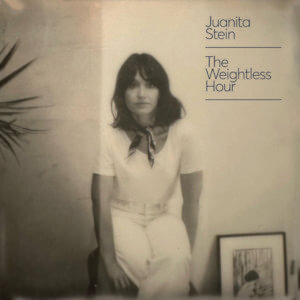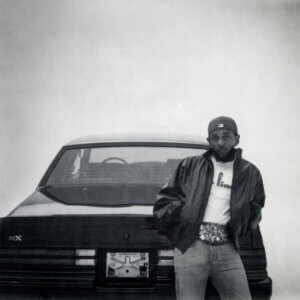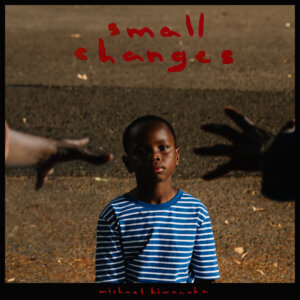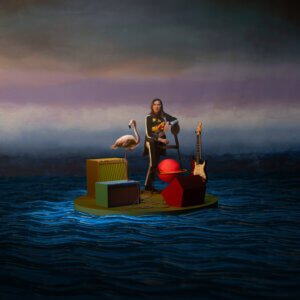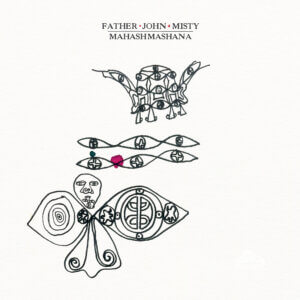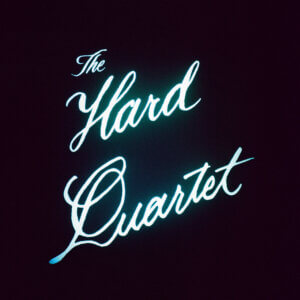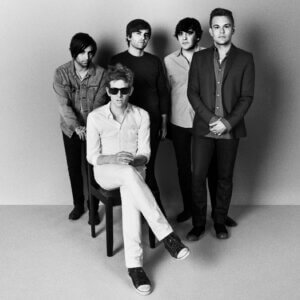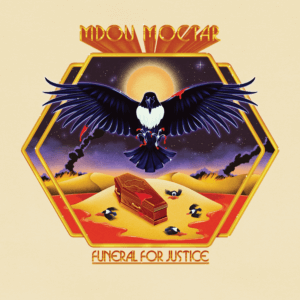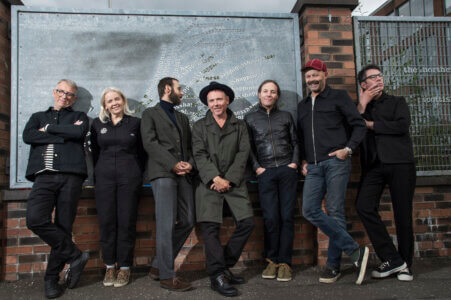Our Interview With Johan From ‘Iceage’

Iceage, the Danish post-punk band once singled out by Iggy Pop for praise and recognition, have gone ahead and done the ultimate punk act – they’ve ventured out alone into new territory, not looking behind to see if they’re being judged or followed. The music on the new album Plowing Into The Field Of Love bears witness to a band who, even if they’ve been given a blessing by the man himself, are determined to go their own way. A little like the classic song My Way that was completely owned and remade by the Sex Pistols and Sid Vicious, Iceage have shaken up different genres in the new album. Northern Transmissions had the chance to speak with Johan Surrballe Wieth, the guitarist. Armed with a few words of Danish, Alice Severin ventured across cold time and space to find out the stories behind the new album.
Northern Transmissions: Hi, how are you?
Johan Surrballe Wieth: Oh yeah, I’m good. I’m just out for a walk, in the sun, it’s sunny but a bit cold.
NT: So you’ve got very short days coming up in the winter – when does the sun go down up there?
JSW: Yeah, I guess the shortest day would be something like six hours, something like that.
NT: Do you think that influences you, that kind of climate and light, or has an effect on your music?
JSW: No, not really. The weather very rarely affects my mood.
NT: You were just touring down in Australia. What was that like?
JSW: Yeah, I had a great time. It’s quite a peculiar place actually. It’s strange, because when we came home and everyone was asking, ‘so did you have a great time’ or ‘how was it’ or ‘did you hate it’ and then I couldn’t really answer the question. (laughs) I didn’t love it, but I didn’t really hate it, it just seemed very strange to me that it exists, really.
NT: Any reason in particular?
JSW: I can’t actually, I can’t really explain it. I’ve been a bit puzzled over the visit, so yeah, it’s just strange, a strange place.
NT: And now you’re about to start the American tour. You’ve been to America before – are you looking forward to it?
JSW: I’m mostly just looking forward to going on tour again and to playing this record to the full. And there are always places that you look forward to going more than other, you know, where you have friends. And we have, by now, collected a few of them and they are scattered all over the continent, so. It should be…what it will be.
NT: It’s a really great album.
JSW: Oh, thank you kindly.
NT: It’s a slightly different sound but there’s still a sort of…passionate desperation. But it seems more spacious too, like there’s more room in the sound. Do you think that’s true and how did it come about?
JSW: Yeah, I think that’s very true and quite literate as well. Yeah, it is more spacious. There is a great change in sound, but as you said, there is passion – perhaps even more. I mean the space in there was I think something that we’ve been wanting to do for a while. But with the first two records, you know, they were so tight, and compressed, and quite dense. But I guess that we acquired the skill and knowledge, how to, you know, shape our soundscape. A bit more refined.
NT: It sounds like the songwriting has taken more risks too, in a positive way. Do you all have a part in writing the songs, and how does that work?
JSW: Everything is done by all four of us, except for the lyrics. So all the songs are written – we all work together on the songs. But that’s how it’s always been, so.
NT: Have you ever started out from somewhere, with lyrics and an idea, and then it’s gone to a completely different place, that you weren’t expecting?
JSW: I mean, in a way, yes, because the songs for this record were only written a hot minute after we were done with You’re Nothing and so the songs were finished about one day before we went into the recording space. And I think that some of the earlier written stuff for the record has kind of adapted into the newer picture of sound. And not really in a deliberate way, but in a very natural evolution, an evolutionary way, I guess.
NT: Did you come up with all the great little weird guitar sounds here and there? There’s a really good bit at the end of Stay. They are inventive, like you’re trying to get more sounds out of the guitar than a lot of people do.
JSW: Yeah, I did. People, when referring to the way that I play guitar, have always been you know, it’s very loud, sounding like a blow torch and the thing is probably at first, I was more into just turning everything up to full level. But in these last couple of years, I’ve definitely, I’ve become much more interested in shaping the sound. But the thing is, it’s a very nuanced level of guitar, and there is quite a lot of it as well, you know. And I’ve spent quite some time figuring out the sound.
NT: What is also interesting about the album is that each song is very separate. It’s the same instruments, but each song has its own kind of sound and you use the guitars slightly differently on each one. There’s a lot of mood change from song to song.
JSW: Well, yeah, yeah. That’s quite deliberate.
NT: And there are different instrument parts.
JSW: Yeah, there are different instrumentations. You know, trumpets, and viola, and mandolin, and piano and organ. We actually played the instruments. (laughs)
NT: So who played the trumpet and organ and viola?
JSW: The trumpet was played by a guy called Eskar who is in a Danish band we are friends with. The strange thing is that the trumpets are dubbed, so we had a session where he came, and he actually hadn’t played trumpet for quite a while, so he was a bit nervous. And then when we sat down and we just kind of instructed him, in a kind of abstract way, saying how we wanted it, and then it just instantaneously, came out exactly how we wanted it to. So that was quite a nice thing. And then the organ and piano parts are played by Elias. And the mandolin is played by Jakob. And I play the viola part.
NT: Have you got classical training, then?
JSW: Oh, no no no. (laughs) No, none of us actually know how to play these instruments. So it’s viola played by someone who is inexperienced at playing viola, and the piano is played by a guy who can’t play piano, and the same with the mandolin. And I mean, we could have found musicians who were expert in playing these instruments, but if you find a person who is really good at playing piano, and then you have us, our style of playing together, the contrast would have been too great. So it made more sense for the music to have us play the instruments, because it just suits the rest of the instrumentation better.
NT: And then you all know each other too, so you know what you are looking for, rather than having to tell somebody else.
JSW: Yes, that’s quite true, yes.
NT: So how did you come up with the title, Plowing into the Field of Love?
JSW: Elias took all the song titles and put them on a piece of paper on his wall. And then I think I was sitting at his house one day, and he had all the titles up and then he just had written it on a piece of paper, just the one, Plowing into the Field of Love, and I was staring at it, and I was like, was that what you had in mind for the title? And he said, yeah, I think so. And we talked about it for a while, and it seemed very grandiose. But then I guess when the record was molded and done, it seemed the most suitable title. So that’s kind of how it came about.
NT: Your English is amazing, and of course way better than most people’s Danish. I tried to learn a little bit of Danish, haj. And mange tak.
JSW: Oh yeah, that means thank you very much.
NT: But language is tricky. Do you think that sometimes being a little distant from the meaning of words makes you able to explore them more than somebody who is used to them, who takes them for granted?
JSW: If you are asking me personally, I think writing in a second language, I think for me, I can’t speak for Elias, but it can be quite helpful. Let’s say if you’re writing something and you choose the person you’re writing as, you can choose to do it in many ways. I think writing in English gives you a distance which makes it easier to work with to express your emotions.
NT: Iggy Pop mentioned you, a couple of years ago, and said that you ‘achieve a certain darkness’ and he compared you to himself. What was that like? Was Iggy Pop one of your inspirations at all?
JSW: Well for me, I grew up listening to Iggy and the Stooges, and yeah, of course I heard about it quite soon (laughs) after he did it. I don’t know, I don’t think Iggy Pop is a direct inspiration, but I mean I listen to his music, and I always have, so yeah, of course I was greatly flattered. Yeah, I guess he has some sort of status. He is very much there, very present.
NT: Do you have other people that you think of as being inspiring?
JSW: I mean I draw inspiration from a very wide span of things, not particularly music. But I mean of course one has inspirations. There are things drawn from the music I listen to. I would have to write a very long list, because there’s quite a lot of people.
NT: The songs on the new album are not necessarily short, direct songs anymore. Like Cimerian Shade, that starts out in a certain way, and then seems to change about halfway through and become much more tense and powerful. What was writing that song like?
JSW: Cimerian Shade, by my recollection, was written quite late. It didn’t take more than a couple of hours to kind of finish it off. I mean, I don’t know if you’re referring to a feeling, or an actual change of pace, but it has a little bit of both. It’s one of the more, I don’t know how to say it, maybe, rougher songs? In the sense of playing, and also on the record the way we mixed it together. The song was done in the first take. And yeah, I think all the mistakes that were made during the first take, just when we heard it afterwards, seemed to be nothing that could be done again. So I guess it has that sense of, I don’t know, falling apart?
NT: And very immediate too, kind of attacking.
JSW: Yeah, yeah.
NT: When you are performing, you create all this energy, there are people headbanging down the front, yet there’s this contrast between how you look on stage, and the audience who look frantic. Did that ever surprise you, or did you expect it?
JSW: I kind of grew up going to punk shows so I grew up with that emotion and people acting out. So it wasn’t surprising – that’s how it’s always been, so yeah. I don’t really notice when we’re on stage because I am quite focused.
NT: And five albums that inspire you.
JSW: I have to think now. I’m just trying to picture my record collection.
Love – Forever Changes is a record that I always listen to.
The Beach Boys – Pet Sounds is also a record that I’ve always returned to.
I think a record that I’ve always listened to ever since I got it is Get Lost by These Immortal Souls.
Low by David Bowie.
The Paris, Texas soundtrack by Ry Cooder is also quite dear to my heart.
NT: Tusind tak.
JSW: You’re very welcome.
http://www.matadorrecords.com/
Latest Reviews
Tracks
Advertisement
Looking for something new to listen to?
Sign up to our all-new newsletter for top-notch reviews, news, videos and playlists.
